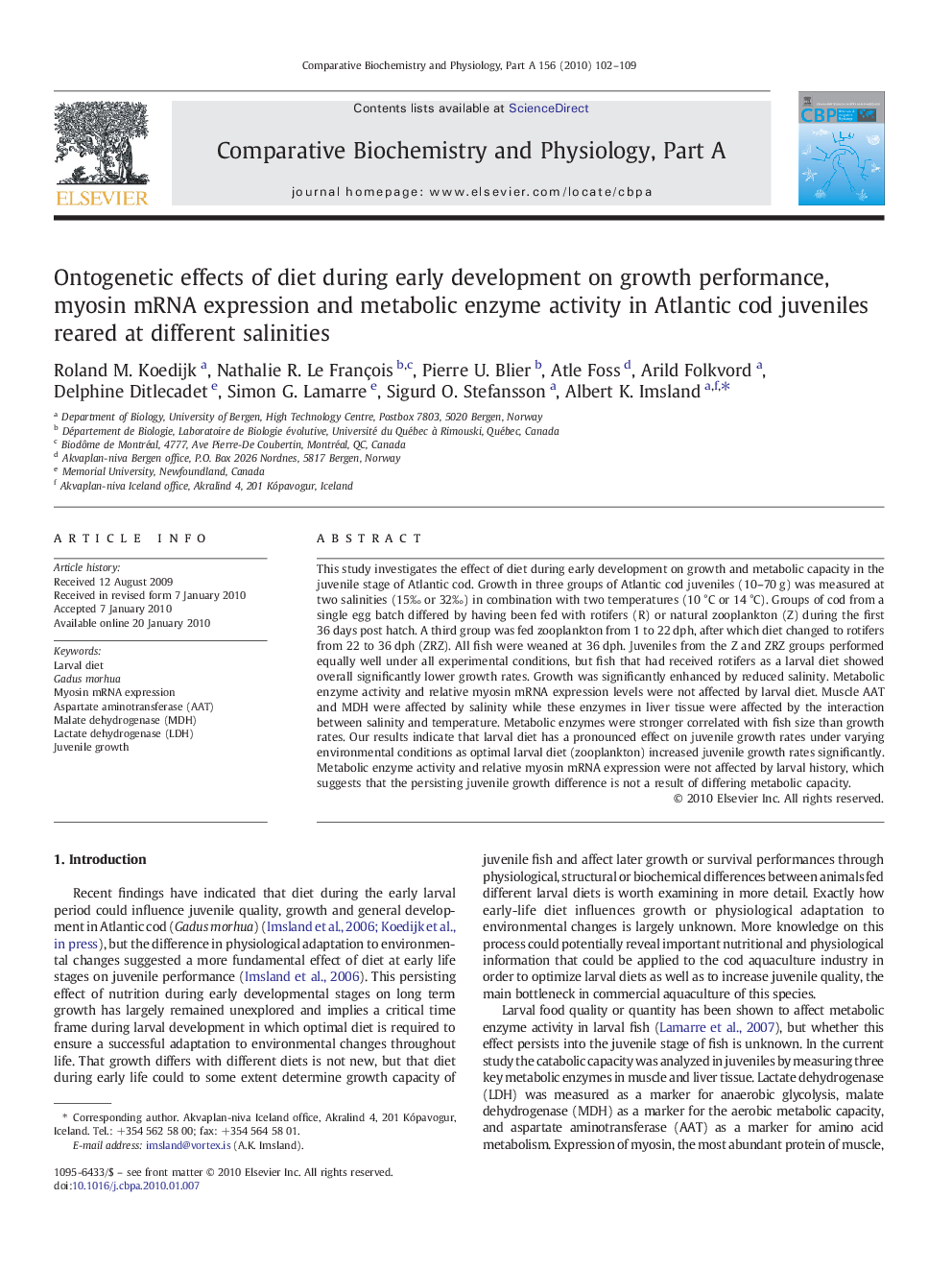| Article ID | Journal | Published Year | Pages | File Type |
|---|---|---|---|---|
| 1972709 | Comparative Biochemistry and Physiology Part A: Molecular & Integrative Physiology | 2010 | 8 Pages |
This study investigates the effect of diet during early development on growth and metabolic capacity in the juvenile stage of Atlantic cod. Growth in three groups of Atlantic cod juveniles (10–70 g) was measured at two salinities (15‰ or 32‰) in combination with two temperatures (10 °C or 14 °C). Groups of cod from a single egg batch differed by having been fed with rotifers (R) or natural zooplankton (Z) during the first 36 days post hatch. A third group was fed zooplankton from 1 to 22 dph, after which diet changed to rotifers from 22 to 36 dph (ZRZ). All fish were weaned at 36 dph. Juveniles from the Z and ZRZ groups performed equally well under all experimental conditions, but fish that had received rotifers as a larval diet showed overall significantly lower growth rates. Growth was significantly enhanced by reduced salinity. Metabolic enzyme activity and relative myosin mRNA expression levels were not affected by larval diet. Muscle AAT and MDH were affected by salinity while these enzymes in liver tissue were affected by the interaction between salinity and temperature. Metabolic enzymes were stronger correlated with fish size than growth rates. Our results indicate that larval diet has a pronounced effect on juvenile growth rates under varying environmental conditions as optimal larval diet (zooplankton) increased juvenile growth rates significantly. Metabolic enzyme activity and relative myosin mRNA expression were not affected by larval history, which suggests that the persisting juvenile growth difference is not a result of differing metabolic capacity.
